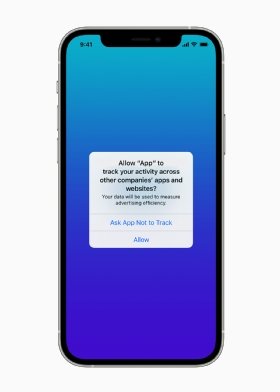
Saktanong - stock.adobe.com
New iPhone privacy settings to hurt small business bottom lines
Small businesses said revenue could drop by as much as 30% because of recent changes Apple made in the iPhone privacy settings. Companies worry they won't reach customers online.
Small businesses braced for a revenue drop as iPhone users changed the privacy settings in iOS 14.5 to opt out of having apps track their online activity and share the information with advertisers.
Companies said they could lose significant revenue if enough people choose the do-not-track option required of all apps in the iOS upgrade released Monday.
Focus Digital Marketing Agency and Nectar HR are two businesses preparing for fewer sales. Focus, a lead-generating service, and Nectar, a maker of employee feedback software, said annual revenue could fall as much as 30% and 10%, respectively. Boston Clinical Trials, a clinical trial research center, said that while they don't have estimates for revenue loss, they could see as much as a 75% decline in leads.
Focus CEO Patrick Allmond said that he relied on Facebook ads to find customers searching for his business. Focus, based in Oklahoma, has five employees and works with about 20 clients.
"I'm worried that I won't be able to reach my audience," Allmond said.
Derek Wigmore, marketing director at Boston Clinical Trials, said the company wouldn't know the ramification of Apple's decision for some time. However, it expects a negative impact because the research center relies on pushing out ads targeted to a specific audience. The company, based in Boston, has fewer than 25 employees.
"This has the possibility of having a really significant impact on our operation," Wigmore said.

Because of the iOS 14.5 changes, companies will likely have to segregate advertising based on potential customers' smartphone operating systems. Apps on Android phones will still collect tracking data without the prompts required by Apple.
Also, companies will have to compete with a lot more businesses for ad space.
"It is going to take some getting used to," said Nectar CEO Trevor Larson. Utah-based Nectar has about 30 employees.
Surveys show that many consumers will likely opt out of online tracking. Nearly 40% of 1,260 respondents in a recent 451 Research survey said they did not see the value in sharing their data and preferred it to stay private.
The new transparency in Apple's data collection is long overdue, said 451 Research analyst Raul Castanon. "The new privacy settings in iOS 14.5 … should be welcome news for consumers as well as enterprise IT."
Facebook has criticized the changes in the iPhone OS as hurting small businesses the most because it'll be more difficult for them to market their products. Also, targeted advertising keeps the services apps provide free, Facebook argued.
Tracking the web activity of Facebook users is a significant contributor to the company's $84 billion advertising business. The company claims Apple made the changes in iOS 14.5 to favor its advertising business over competitors'.
The Wall Street Journal reported this week that businesses that buy Apple's ad space would have access to more iPhone user data than companies that go through third parties because of the new privacy settings.
Nevertheless, Apple insists it is giving customers what they want -- more control over their data. Apple CEO Tim Cook said companies should collect personal data only with people's permission.
Even though his business could suffer, Allmond said that as a consumer and Apple product user, he appreciated the focus on privacy that comes with iOS 14.5.
"I have to think about this with two hats," Allmond said. "As a consumer and as someone who values my privacy, I'm a big fan of it. But when I put my business hat on, and how I put food on the table, it's definitely going to take a hit there."
Maxim Tamarov is a news writer covering mobile and end-user computing. He previously wrote for The Daily News in Jacksonville, N.C., and the Sun Transcript in Winthrop, Mass. He graduated from Northeastern University with a degree in journalism. He can be found on Twitter at @MaximTamarov.






